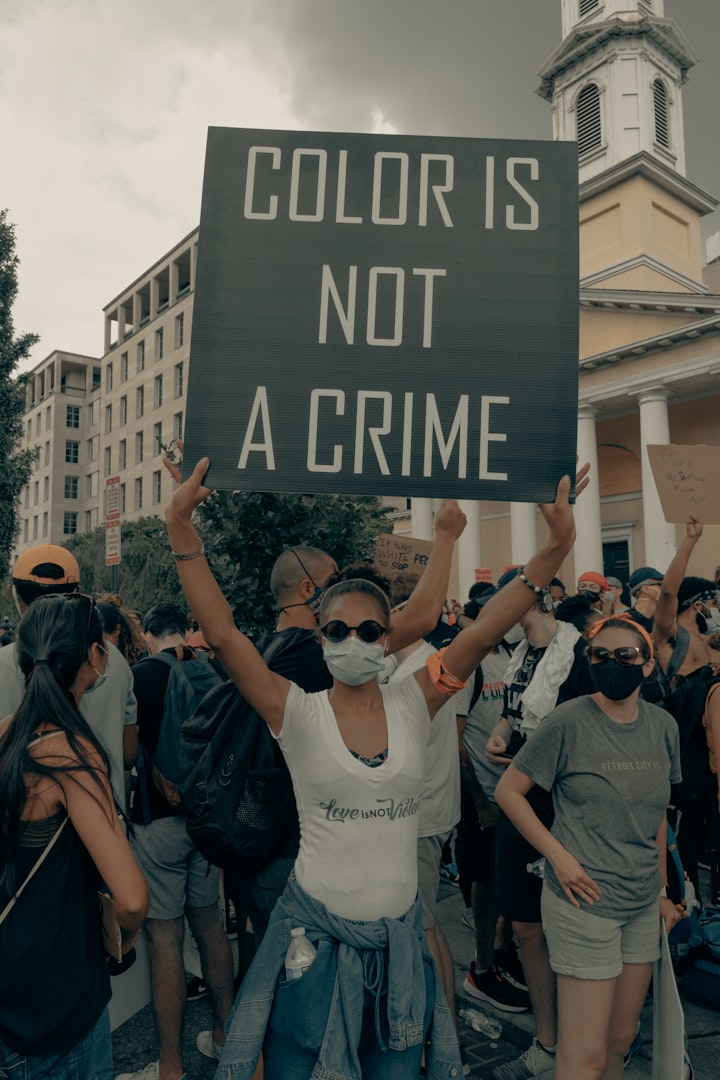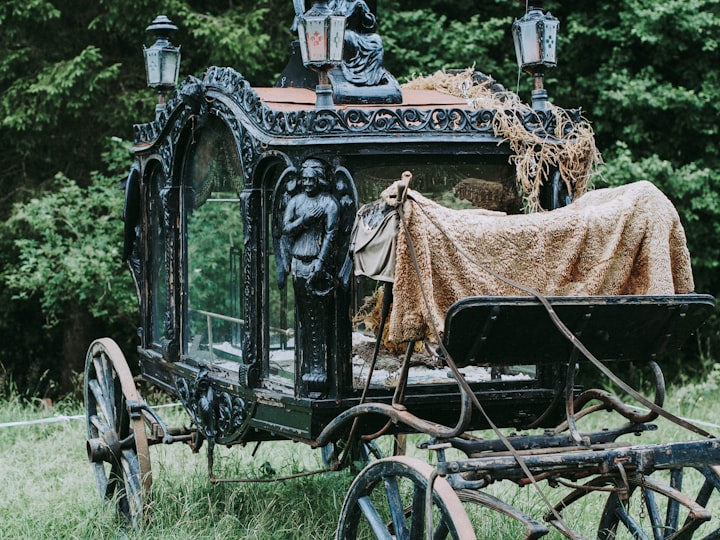Racial justice, police reform, activism, and equality.
Social justice and racial equality

In the bustling city of Metropolis, where skyscrapers kissed the sky and a symphony of car horns filled the streets, a profound change was stirring. It was a time when the echoes of injustice reverberated through the hearts of its diverse citizens, and a group of courageous individuals emerged from the shadows to rewrite the city's narrative.
At the center of this tale was Malik, a young man with a spirit unyielding to the weight of discrimination. Raised in a neighborhood marked by poverty and a strained relationship with law enforcement, Malik had witnessed the effects of racial profiling and systemic biases firsthand. His resolve to bring about lasting change burned bright within him.
One fateful evening, Malik found himself at the heart of a peaceful protest against police brutality, where chants of equality echoed through the streets. People from all walks of life, joined together by a shared vision, marched side by side, their voices becoming a chorus of resilience. They demanded justice, police reform, and an end to the injustices that plagued their community.
Among the protesters was Maya, a young activist with a fiery spirit and unwavering dedication to the cause. Her words echoed through the crowd, inspiring hope and igniting a passion for change. Maya and Malik's paths crossed, and their shared purpose brought them together in a powerful alliance.
Driven by their collective determination, Maya and Malik, alongside a diverse group of activists, formed a coalition known as "The Advocates for Justice." Their mission was clear: to challenge the status quo, advocate for police reform, and fight for racial equality within the fabric of Metropolis.
Their first endeavor was to establish a community dialogue initiative, bridging the gap between law enforcement and the citizens they served. They believed that open and honest conversations were the first step towards understanding and change. The Advocates for Justice organized town hall meetings, inviting police officers and community members to engage in respectful discussions about the challenges they faced and their shared goals.
Through these dialogues, walls began to crumble, and stereotypes shattered. Officers began to see the individuals behind the statistics, and community members learned about the daily struggles faced by law enforcement. Trust began to sprout in the hearts of both sides, laying the foundation for a collaborative effort towards reform.
Inspired by the progress they were making on a grassroots level, The Advocates for Justice set their sights on larger-scale change. They tirelessly lobbied local politicians, attended city council meetings, and rallied public support for comprehensive police reform. The coalition developed a blueprint that focused on de-escalation training, implicit bias awareness, and increased accountability measures within law enforcement.
Their efforts did not go unnoticed. News outlets began to shine a light on The Advocates for Justice and their inspiring mission, leading to broader public awareness and support. Celebrities, athletes, and influential figures joined the cause, using their platforms to amplify the voices of those fighting for justice.
As the movement gained momentum, The Advocates for Justice faced resistance from those who feared change and clung to the flawed status quo. They encountered opponents who dismissed their efforts, belittling the struggles faced by marginalized communities. But Maya, Malik, and the rest of the coalition remained steadfast, knowing that their cause was rooted in righteousness.
The turning point came when the Metropolis City Council, moved by the relentless advocacy of The Advocates for Justice and the widespread public support, passed a landmark police reform bill. The bill implemented many of the changes proposed by the coalition, including mandatory body camera usage, independent oversight boards, and increased community involvement in decision-making processes.
With the passing of the bill, a wave of hope washed over Metropolis. The city, once burdened by mistrust and injustice, began to heal. Police officers and community members worked side by side, forging partnerships that were built on understanding and shared goals. Gradually, a new narrative of collaboration, empathy, and accountability took hold.
Maya and Malik continued their activism, dedicating their lives to advancing social justice. They became beacons of hope, inspiring future generations to carry the torch forward. The story of The Advocates for Justice and their tireless fight for racial justice, police reform, activism, and equality became a powerful chapter in the city's history, reminding all that the power to create change lies within each individual.
And so, in the sprawling city of Metropolis, a new dawn emerged, where the pursuit of justice prevailed, and the seeds of equality bloomed. It served as a testament to the collective power of passionate individuals, united in their unwavering belief that a better world was not just a dream but an attainable reality.
In a world where diversity is both a strength and a source of conflict, the fight against racism has taken center stage. As society grapples with the deep-rooted biases and systemic inequities that perpetuate discrimination, significant efforts are being made to implement control measures that address racism on a global scale.
Education stands as a powerful tool in the battle against racism. By fostering understanding, empathy, and respect for all races and cultures, education has the potential to shape the minds of future generations. Countries around the world are incorporating anti-racism education into their curricula, ensuring that young learners develop an awareness of systemic racism, the historical context of oppression, and the importance of allyship. This type of education aims to dismantle prejudices and cultivate a more inclusive society.
Legislation plays a crucial role in controlling racism by providing a legal framework to combat discrimination. Governments are enacting laws that prohibit racial discrimination in various domains, such as employment, housing, and public services. These laws aim to protect individuals from racial harassment, ensure equal opportunities, and establish mechanisms for reporting and addressing instances of racism. By holding perpetrators accountable and providing legal recourse for victims, legislation acts as a deterrent and a means of seeking justice.
International bodies, such as the United Nations and its various agencies, play a significant role in the global fight against racism. These organizations work to develop and promote international conventions and agreements that address racism and racial discrimination. Through initiatives like the International Decade for People of African Descent and the International Day for the Elimination of Racial Discrimination, they raise awareness, share best practices, and foster international collaboration to combat racism.
Media and technology have also emerged as influential players in the control measures against racism. The power of media to shape public opinion and narratives cannot be understated. Media outlets are increasingly taking responsibility for portraying diverse perspectives and challenging stereotypes. Representation matters, and the media has the capacity to influence societal attitudes towards race. Similarly, social media platforms have become spaces for advocacy, enabling marginalized voices to be heard, and fostering communities of support. Social media campaigns and movements like #BlackLivesMatter have brought global attention to racial injustices, sparking conversations and mobilizing people around the world.
Businesses and organizations have an essential role to play in controlling racism. Many corporations are recognizing the importance of diversity, equity, and inclusion within their own ranks. They are implementing policies that promote equal opportunity, diverse hiring practices, and inclusive workplace environments. By fostering diversity at all levels, companies can challenge systemic biases and create a more equitable society.
Community engagement and grassroots activism are fundamental in controlling racism. Individuals and organizations at the local level are working tirelessly to raise awareness, organize protests, and advocate for change. Grassroots initiatives promote dialogue, provide support networks, and empower marginalized communities to fight against racism in their daily lives. By working together, these community-led efforts create spaces for solidarity and foster a sense of collective responsibility.
Lastly, introspection and self-reflection are critical control measures against racism. Society as a whole must confront its own biases and actively work to unlearn discriminatory beliefs and behaviours. This requires individuals to examine their own privilege, listen to marginalized voices, and take actions that promote equality. By recognizing the ways in which racism manifests within ourselves and our communities, we can strive for personal growth and contribute to a more inclusive world.
The control measures against racism in the world at large are multi-faceted and interconnected. Education, legislation, international collaboration, media representation, business practices, community engagement, and personal introspection all play vital roles. It is through the collective implementation of these measures that we can create a world where racism is truly eradicated. As we continue this fight, it is crucial to remember that the responsibility lies with each and every one of us to challenge racism in all its forms and foster a society that values diversity, equality, and justice for all.
About the Creator
Abel Omikunle
Abel Omikunle is a young man of 48 and a highly experienced professional in the field of sales and marketing management .
An exceptional goal getter and a veteran leader that has been able to create and build copious leaders in diverse field





Comments (1)
If it is equally your desire to eradicate and totally eliminate racism completely out of our society then, don't hesitate to deposit your heartfelt comments.